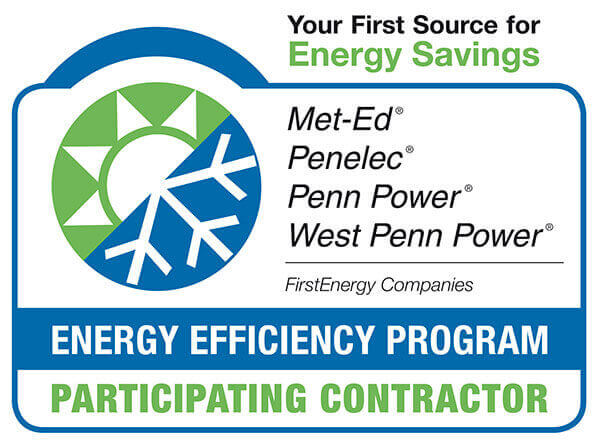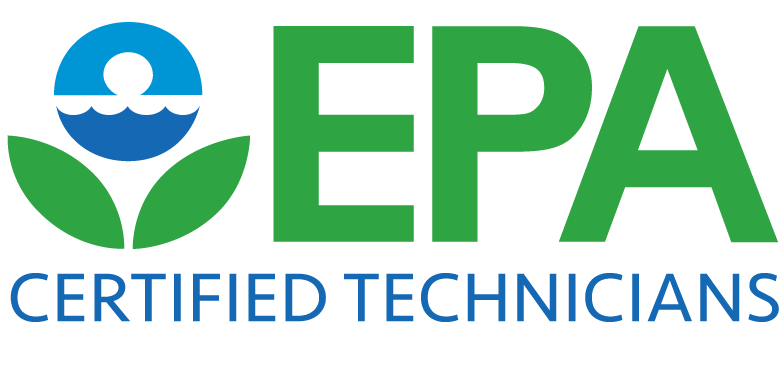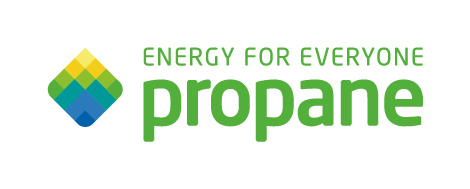SOS XTREME Comfort® provides the best heating and cooling repair services in Lafayette. Our technicians are trained in the very latest technology and can work on all brands of oil, propane, electric and gas heating systems and central air conditioning systems.
We service, repair and install:
- Oil Heat Systems
- Gas Furnaces, Boilers and Heating Systems
- Propane Heating Systems
- Electric Heat Pumps
- Central Air Conditioning Systems
- Ductless Heating and Cooling Systems
At SOS XTREME Comfort®, we specialize in creating comfortable environments in homes and businesses. We have been helping customers in and around Lafayette since 1934. Give us a call today to get your heating or cooling system serviced or installed.
Call For Fast Service:
973-827-8179
API Token is not configured
In addition to servicing Lafayette we also service the following nearby towns:
Branchville, Franklin, Glenwood, Hamburg, Highland Lakes, Lafayette, Mc Afee, Montague, Sussex, Vernon
Click here to view our total service area.
FAQs
Q: What does HVAC stand for?
A: HVAC is an acronym that means heating, ventilation, and air conditioning.
Q: What type of routine maintenance do I have to do on my heating and air conditioning system?
A: The most recommended way to keep your unit functioning properly is by being sure that it has proper air circulation. When you have unclean air filters, blocked registers or air vents, or debris around your outdoor unit, then you are not correctly taking care of your system. Be sure that, as a homeowner , that you are very aware of this and keep your system clean. Don’t forget to plan a tune-up in the preseason. One really should be set up in the spring season for your AC and one more must be arranged in the autumn for your heater.
Q: How do I recognize when to remove and replace my air filter?
A: The need to replace your filter changes from one household to another. Some residences are dustier or have furry pets which will entail a filter change more often. It is advised to inspect it on a monthly basis. Some home or apartments should change their filter monthly. Some houses will need to change it every 90 days. This holds true if the house is using a premium quality filter and certain variables that make a filter dirtier more frequently are not present. Regardless, check it once a calendar month and if it looks filthy, then be sure to change it out.
Q: How do I determine when my AC, central heater, or HVAC system is still under warranty?
A: All these types of systems have a manufacturer’s label on it. Look at your unit and look for the label. In most cases, warranties last about 5 years. This can change from one brand name to another but this is generally standard. It also changes according to the company that installed it. A reliable Lafayette heating and cooling company, like SOS XTREME Comfort®, will be able to give you more info on your system and let you know if the manufacturer’s warranty for your unit is still legitimate.
Q: What does IAQ stand for?
A: IAQ is a term that is used in the industry that stands for Indoor Air Quality. Although the majority of people have regularly heard of outdoor air pollution, indoor air pollution is a problem. This term signifies that the level of air pollution that is present in a home or even a building. According to the American Lung Association, being exposed to pollutants happens more typically indoors than in an outdoor environment by a significant amount. This is why it is necessary to have an HVAC system that improves IAQ and really aids property owners who deal with respiratory issues and allergies.
Q: What are the sources of indoor air pollution?
A: As surprising as it may seem, many items contribute to indoor air pollution. Items such as carpeting, furniture, drapery, and even upholstery have compounds in them that are constantly emitting fumes or gases. The cleaning products that you use may contribute to indoor air pollution. Since newer homes are more energy efficient, this also means that they are not ventilated the way that older homes in the past do. They do not breathe. Therefore, the buildup of these gases and fumes cause indoor air pollution. Newer homes need a whole house ventilation system to combat the possibility of indoor air pollution so that homeowners can rest assured of their safety while enjoying their extremely energy-efficient home.
Q: How does my HVAC system move air all around my home?
A: An HVAC system uses a fan to pull air in. The air that is drawn in is then driven to your air handler. Once it has heated up or cooled down the air, then it pushes it back through your ducts and through your vents. Vents or registers are traditionally positioned on your walls, ceilings, or floor surfaces.
Q: Should I cover up my exterior unit through the winter season?
A: Your outside unit is constructed to cope with the harshest of winters months so it is not advisable to cover your unit. If a person were to unintentionally turn on the air conditioning unit when your unit is covered, it can wreck the condenser and all of its components.
Q: What should I set my thermostat to: on or auto?
A: You need to set your thermostat to the auto setting. This permits the fan to run only when it is required. Most homeowners choose this setting because it is the most energy efficient. The on setting may be used when you desire to have air continuously filtered all throughout your home. The air is dispersed and it can supply a more even temperature through your home. However, it does use additional power to do this. Modern central heaters have fan motors that have this feature.
Q: I have purchased a new furnace and air conditioning system. How much time should I expect it to last?
A: This all is dependent on a number of variables. When you purchase a brand-new furnace or air conditioner, they are manufactured to last nearly 15-20 years. It must be noted that cooling and heating systems eventually become less energy efficient as they age. Consequently, a 12 year old HVAC system will not be as energy efficient as a brand-new one. You can help your system last and operate more efficiently by adequately maintaining it. Proper installation also contributes to the service life of an HVAC system. Make sure that it is installed correctly by choosing a reputable Lafayette HVAC company, like SOS XTREME Comfort®.
Q: How can I make my system work a bit more efficiently without needing to substitute it?
A: When you don’t want to upgrade your unit, you ought to properly maintain it. This means that you, as the property owner, need to do some preventative care on your unit and also organize a tune-up every 6 months. It is advisable to organize one in the spring season just before the hot weather hits and schedule one in the fall, right before the wintertime arrives. By doing so, you can enhance the energy efficiency of your system by nearly 5% -10%. This makes a huge difference on your electricity bill. Yet another method to keep your heating and cooling system energy efficient is by just changing out dirty air filters. Be sure that you don’t select the least expensive filters. They normally get dirty quite frequently which impacts how much power your heating and cooling system uses. When you invest in top notch filters, it keeps your system clean which translates into big savings because it doesn’t have to operate as hard. Make sure not to block off the registers or air vents at home. The solution to making your system run appropriately is ideal air circulation. Do not forget about your outdoor unit. Don’t forget to enable sufficient space around your outdoor unit for it to ‘breathe’.
Q: I will need to purchase a new heating/cooling system. How do I find the right one for me?
A: Most importantly, you have to think of the size of the unit. Don’t be drawn to buy an over-sized unit, assuming that it will heat up or cool down your home a lot rapidly than a smaller sized one. Some house owners think that a smaller unit will minimize their home heating and air conditioning expenses. A unit that is too small will not save money on your electrical power statements. Some people have the misunderstanding that size is a choice. In fact, it is not. The size of your unit should match the size of your ductwork. If not, your home will not feel comfortable and your energy invoices will increase. A Lafayette, New Jersey HVAC contractor will be able to help you figure out what size your home needs for it to do its job successfully. A perfectly sized unit will keep your home comfortable and in an energy efficient manner. Make sure to ask your HVAC expert about operating costs for the brand-new system that you have an interest in. Be sure to select one that pays itself off. New systems are so energy efficient that you will definitely see a difference on your electrical power costs and that is how you get a return from your investment.
Q: I comprehend that I need to have my furnace tuned up in the fall and my air conditioning system tested in the springtime. Why can’t I have both evaluated at the exact same time?
A: You use your HVAC system the most in the summer months and in the cold season. Therefore, you will want to have your air conditioner looked at the early spring and your heating system evaluated in the autumn. A Lafayette HVAC service provider will get more of a proper result when each system is about to be put to use the most. This minimizes really expensive repair jobs and it confirms that your system is working at peak performance.
Q: Will a new Lafayette HVAC system lower my electrical bills?
A: New HVAC units are even more efficient than their previous comparable versions . By requirement, they have to have a 13 SEER or Seasonal Energy Efficiency Ratio. This signifies that they are significantly energy efficient. There are also designs that have a greater SEER rating than 13. The greater the rating, the more energy efficient that it is. With a 13 SEER, you can save as much as 50% on operating costs.
Q: Can I close off doorways and air vents to areas that aren’t commonly used?
A: No. You should not do this simply because a system is exclusively constructed to match the ductwork and the comfort needs of your house. When you do shut doors and air vents, you strain your system’s blower motor, causing it to work harder. This will make it less energy-efficient since it will cycle more frequently.









